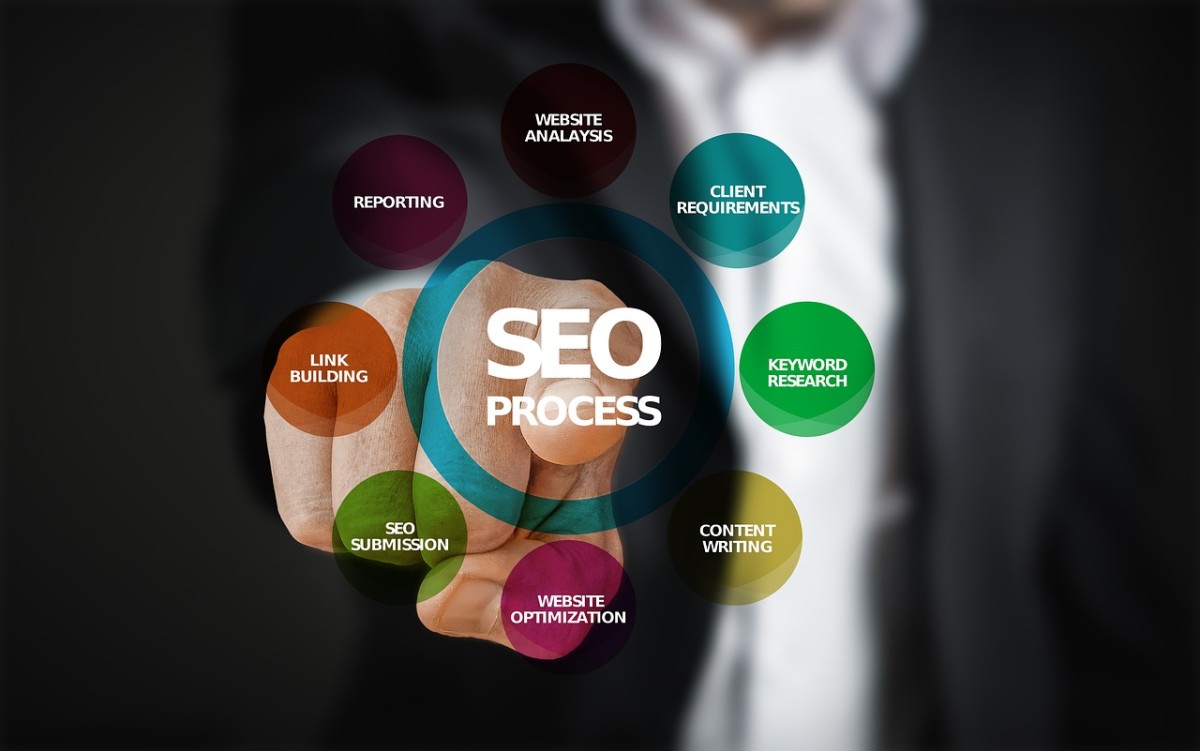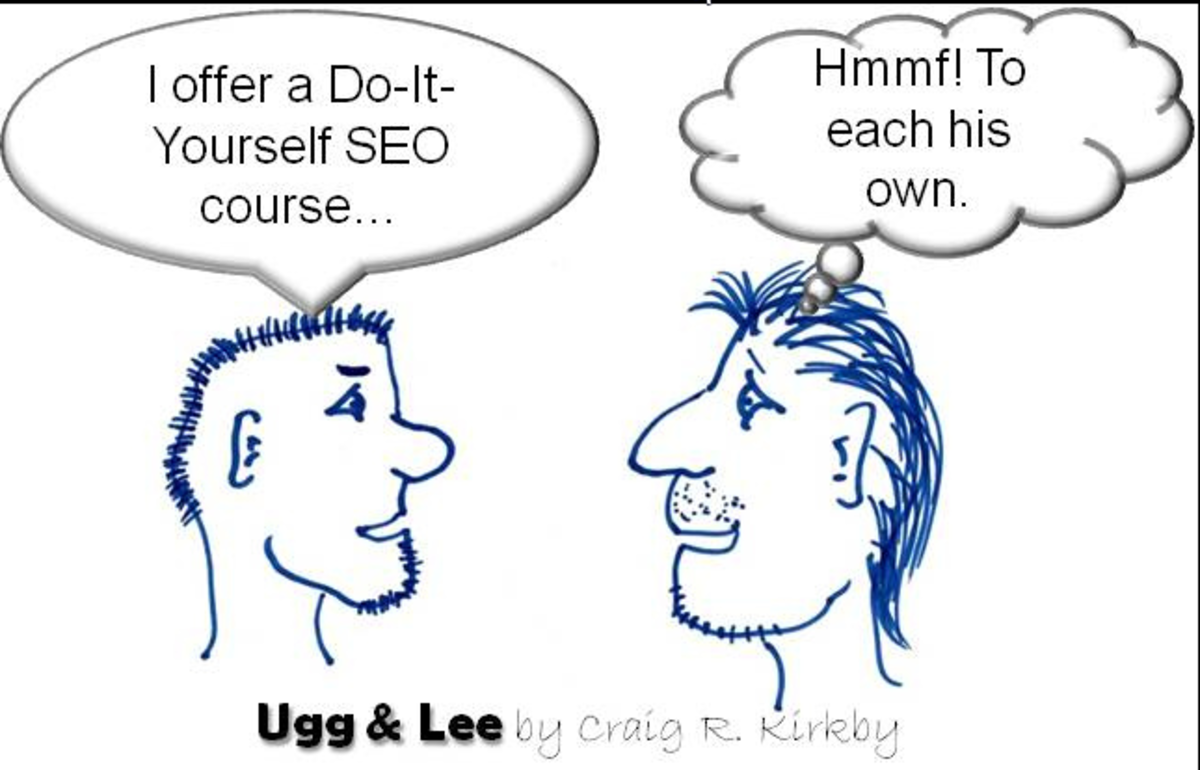- HubPages»
- Books, Literature, and Writing»
- Commercial & Creative Writing»
- Making Money as a Writer
How to Write SEO Articles That Earn the Most for You

"SEO articles" is a term that's bandied about--but what does it really mean and can you write seo-optimized articles that earn more for you?
To answer those questions: SEO stands for search engine optimization and SEO articles simply refers to search engine-optimized articles.
Writers who've gotten their feet wet writing for the web will no doubt be familiar with the terms SEO and SEO articles. For the purpose of this Hub, we will discuss how SEO articles differ from regular articles and why writing articles with SEO in mind can make a difference to how they ultimately perform with search engines and how this impacts on subsequent traffic levels and future earnings.
Increasingly, search engines and Google are assigning greater relevance to unique, content-rich articles, written works that offer real value to the reader. And so it should be. No one wants to do a search for specific information and then read through gibberish or an article so thin that it is a waste of reader's time. As the Internet has become flooded with content, search algorithms have become increasingly sophisticated in weeding out material that offers little value and that has already been widely distributed across the world wide web--basically, topics that have been worked to death.
It is not enough to take an idea and reword it. Far better is to add something new so that your article offers more than the competition. Admittedly, this can be hard-going.
Writers, in fact, may feel hard-pressed, because there really is nothing that is overly new under the sun, is there? They may be wondering, in light of increasingly stringent Google policies about unique and comprehensive content, does article SEO even still matter?
SEO Articles Still Out Perform Regular Articles
While the bar has been raised in relation to online content and the quality thereof, there is still a place for SEO articles or search engine optimized web copy, (articles that have been optimized with keywords so that they perform better).
Up-to-speed writers are now writing articles that satisfy the latest search engine criteria, while still ensuring that their articles are keyword-optimized for best performance. This is a good practice to adopt.
As Jon Wuebben says in his book Content Rich: Writing Your Way to Wealth on the Web, "Writing optimized, compelling, keyword-rich copy" is "the quickest, easiest and least expensive way to grow sales, increase search engine rankings, and build your brand." A writer may not be using an article to generate actual sales but certainly the part about search engine rankings holds true.
All of that is well and good, but you may be wondering how to go about writing seo articles that actually earn more you.
Following an SEO Article Formula
Writers who spend the greater part of their day writing keyword articles, have a formula, of sorts; in fact, "SEOing" an article becomes second-nature after awhile.
If you aren't entirely sure how to write SEO articles, continue reading for pointers on how to do just that. Having a formula for your article writing can help you to improve your articles' visibility online.
Some writers follow a loose Z-pattern for their keyword placement, with the keywords at the start of the title, inserted throughout the article, in bold subheadings, placed in the last paragraph.
How to Write SEO articles
- Choose your keyword or keyword phrase
- If possible, place this towards the front part of your title
- Include it or a variation in your opening paragraph
- Use your keywords throughout your article
- Include your keyword in any bold subheadings
- Use keywords naturally and do not keyword-stuff your article, which could compromise its standing and impact on its earning potential
- Include your keyword in your concluding paragraph
- Add your keyword, if possible, in image descriptions
Article SEO: a Closer Look
- It is pointless to just write about whatever you want and hope to earn good money doing so--or to simply choose whatever keyword takes your fancy. If you are writing for a hobby, this might fly, but if you are writing to earn money, invest the time to select suitable keywords. Why choose a word that has potential of earning .10 per click when you could choose a word that might earn far more for you? Learn how to use the Google AdWords Keyword tool to sequentially arrange keywords so that the highest cost per click keywords show at the top of the column.
- You can help search engines "figure out" what your article is about by placing your keyword/keywords in your title. While search engines are sophisticated, they are non-human and hence anything you do to help the engines determine what your content is about and thus index and rank it can make a difference.
- Stay on target when you write your opening paragraph and it will not be difficult to include your keyword or a keyword phrase as you begin your article.
- Learn about keyword density but do not adhere to it rigidly. Keyword density seems to be less of a concern these days. As long as you write naturally, as you would talk, and include your chosen keywords where appropriate, your article will still perform better than one that has not been written with SEO in mind nor that uses keywords in optimal locations.
- As you break your article into manageable size sections, add your keyword and variations in your subheadings.
- As you work down through your article, ensure that adequate space exists between areas in the text where your keywords appear.
- It is a simple matter to include your keyword/keywords in your last paragraph. You are summing up your article and at that point this is a natural step.
- Some writers will work hard to SEO an article but then drop the ball when it comes to images. This is another area where you can use your keywords to advantage.
Serving Two Masters: Search Engines and Human Readers
Once you've got your basic article written and keywords appropriately placed, at this juncture, you can turn aside from keyword optimization and flesh out your article by writing for your readers. At that point, you've already SEO'd your article, now you can make the "whole" stronger by working to make your article the best it can be, not only in terms of quality of writing but in what you offer to your human readers.
The old rule of thumb for internet articles was "short and sweet" the new game in town is "longer and comprehensive." Perhaps the best game-plan online writers can adopt is to worry less about Google rules and simply write comprehensive, keyword optimized copy.
An article that is well-written and SEO-optimized, that offers value to human readers and covers a topic in depth is a powerful article indeed, one that will perform better with the search engines and one that readers will turn to again and again.
Did You Catch These Tips?
- Choosing higher CPC keywords can spell higher article earnings
- Fleshing out your article so that it offers comprehensive information can help to make it search engine-friendly, which spells more readers and more revenue
How to Appear on Google's Front Page?
if you want your article to appear on Google's first page and thus attract a wider audience, a good way to make this happen is to master SEO article writing. As can be seen, you can use a formula of sorts to include your keywords to satisfy the search engines.
Always keep in mind, though, that your readers are human and ultimately, if through your article SEO, they've come across your article, it is your job, as the writer, to offer your readers something of value.
When you think about it, writers can capitalize on both worlds: writing search engine friendly articles, properly SEO'd for optimal performance, while offering comprehensive information to readers. Articles that include these elements stand a better chance of performing well over the long-term. If you follow these guidelines, you, too, can write SEO articles.
Did You Know How to Write SEO Articles Before Reading This Article?
© 2012 Athlyn Green








